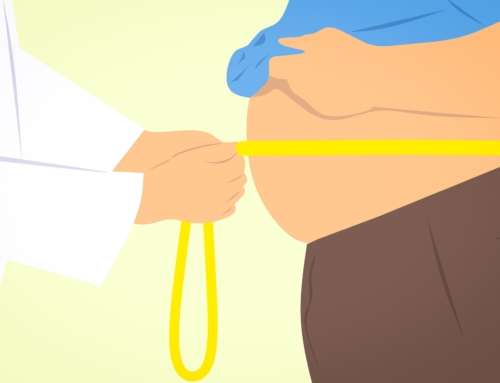Herpes viruses are more common than you ever thought of as an underlying cause of chronic disease. So far, there are 9 different herpes-type viruses that can infect humans and I suspect there might be even more. You may be familiar with herpes type 1 which are predominately responsible for cold sores. Herpes type 2 are historically known for causing genital herpes but we do know that either one can cause cold sores or genital herpes. Today I am going to discuss Herpes type 4. Even though you may not have heard of type 4 I bet you are familiar with what we do call it…. Mononucleosis, mono for short! Mono is caused by the Epstein barr virus (EBV) which is herpes virus #4.
When someone gets mono they typically have a cluster of symptoms: sore throat, swollen lymph glands in the neck, fever, and severe fatigue. Severe cases will cause an enlarged spleen which presents are abdominal pain on the left side of the abdomen. It is typically spread by coming into contact with someone shedding the virus often before that person has any symptoms. This is why it was known as the “kissing disease” but doesn’t require intimate contact for it to spread. There are only supportive treatments in the traditional world: hydrate and sleep it off. Symptoms can last a few weeks or can drag on for months with the initial infection.
Old school thought used to say once you got mono you would never get it again but let’s consider cold sores. You know that once you have a cold sore it can always come back especially during high stress times or when your immune system is low. EBV is the same as a cold sore. Once you get it, it is stored in your cells and can be released in the future and become reactivated. This is where medicine is falling short in so many people, recognizing the possibility that they are dealing with a reactivated EBV. I believe many chronic conditions are possibly underlying reactivated EBV that has been missed. Perhaps the EBV starts a cascade of other symptoms. Many chronic conditions may actually be related to herpes viruses. We already know that Burkitt’s lymphoma is thought to be initiated by EBV. The bottom line is we really don’t understand this virus. Many people who have reactivated EBV don’t even know they have had mono in the past so READ ON if you have unexplained muscle aches, fatigue, joint pain, or relapsing symptoms that come and go. I will review what test to get and many options for treating not only EBV but the herpes family viruses in general.
How to test for EBV
Most physicians only do a cursory test for EBV looking at a few markers. Let’s review the differences.
EBV IgM – when the IgM antibody is positive this means you have an active, brand new infection.
EBV IgG Viral Capsid Antigen: this is usually positive early on in a new infection. Once it is positive, it stays positive for life.
EBV IgG Nuclear Antigen: this marker usually becomes positive within 2-3 months after onset of a new infection and also stays positive for life.
These three tests are the norm for testing but you can see a big gap in that they only look for new infection and the presence of an old infection. What about reactivated cases? This is where one of my go-to tests come in: EBV IgG Early Antigen D Antibody. This test may be positive at the initial onset of a new infection but usually goes away and becomes normal again. If it is elevated outside of the initial infection then it means it is a reactivated EBV. When someone gets a reactivated EBV infection I call this a “flare” of chronic EBV. A flare will have many of the same symptoms that people get with new mono infections: severe fatigue and low grade fever but it often picks up a few new symptoms of muscle aches, joint pain and the sore throat may or may not be there. Many of these people will get diagnosed with fibromyalgia, chronic pain or serologic negative rheumatoid arthritis. Symptoms can last for months or even years and be debilitating.
When EBV becomes chronic, the old treatment of hydrate and rest just doesn’t work anymore. The longer is lasts the more your immune system gets depleted helping it to last even longer. I have worked with many people who we diagnosed with chronic EBV and have learned that everyone responds differently to treatments so I have a tool box of options to try and just keep going until something starts to help. The bottom line is the immune system has to be boosted to tip everything in your favor.
Here are some of my tools:
- IV therapy: I cannot stress how important IV nutrients are with EBV. Since IV therapy bypasses the gut a person gets full doses that don’t require absorption with an often unhealthy gut. We can dose higher doses of vitamin C that the gut could not tolerate which really helps boost the immune system and has some anti-viral properties on its own. The B vitamins are very supportive for the adrenal glands and therefore also boost the immune system. We start out with once a week and then start spacing them out once you are responding.
- ViraCon by vital Nutrients: This is an herbal supplement that has a unique blend of ingredients that help open the viral capsule while working on supporting the immune system. I recommend this during flares as well as maintenance. Flare dosing should be three to four times a day.
- Valtrex: This is a prescription drug that is used for genital herpes or chronic cold sores. It is an off-label use as there are no medication treatments typically recommended for EBV but if a case if severe then I would consider trying it. After all EBV is a herpes virus, It just makes sense that it might help. Liver function tests need to be monitored if you are using this medication.
- MonoLaurin: Monolaurin is touted as an immune booster particularly good for viruses. While the literature I have read on this is solid, I don’t see as much oomph out of this product as I would like. However, I do believe when added to other supplements it can make a difference. I do know the quality of the product really matters.
- Celery juice: The book called the Medical Medium which focused primarily on EBV touted celery juice as an anti-viral/anti-bacterial. My patients who have tried this do feel like it helps so may be something to add to the mix.
- L-Lysine may be a good baseline supplement all the time as when lysine levels are high arginine levels are low and science has proven that high arginine helps activate herpes viruses (yes, cold sores and genital herpes may benefit, too). Dose this several times a day for best results. 500mg twice a day is the typical dose but you may go up if needed.
- Change your diet: Avoid high arginine foods like wheat bread, almonds, peanut butter and grape juice. Other foods like turkey, pork loin and other high arginine foods may also be culprits. Everyone is affected differently so just be aware and consider looking up high arginine foods and removing them from your diet as much as possible.
- Other supplements that boost the immune system like vitamin C and mushrooms are also beneficial.
- Stress reduction: this really should be first on the list because if you don’t get control over your stress then it’s an uphill battle!
- Sleep! Yes, you still need lots of sleep so if you are tired… sleep. Don’t keep pushing thru it otherwise it will take even longer to get over this.
I always start with one or two and then build on from there if the person doesn’t feel like they are turning the corner in 3 weeks. There are lots of other supplements and techniques that can be useful so if you have chronic EBV keep looking and trying combinations of different products. Once you come out of a flare it is very important that the first signs of a new flare you hit it hard with whatever regimen worked for you before. Some people need to be on a maintenance of some type of supplements to help decrease the number of flares.
When people get mono or reactivated mono they don’t feel good so keep that in mind when you know of someone dealing with this. When you get this as an adult we seem to be hit even harder.
To your health,
Laura









